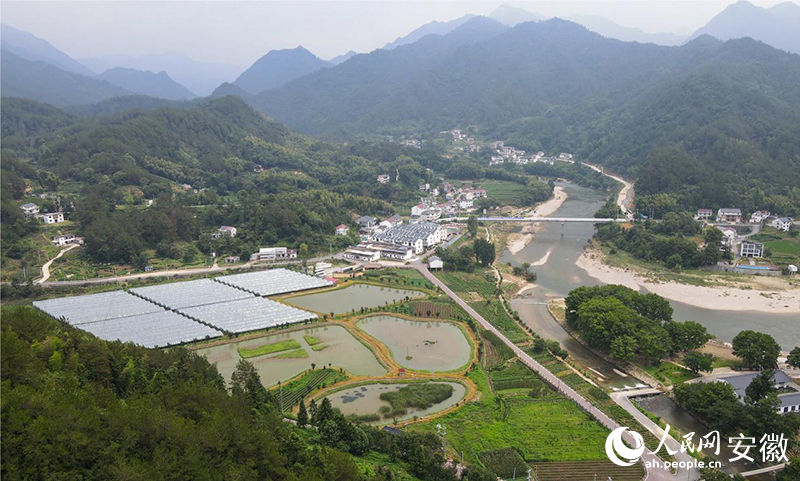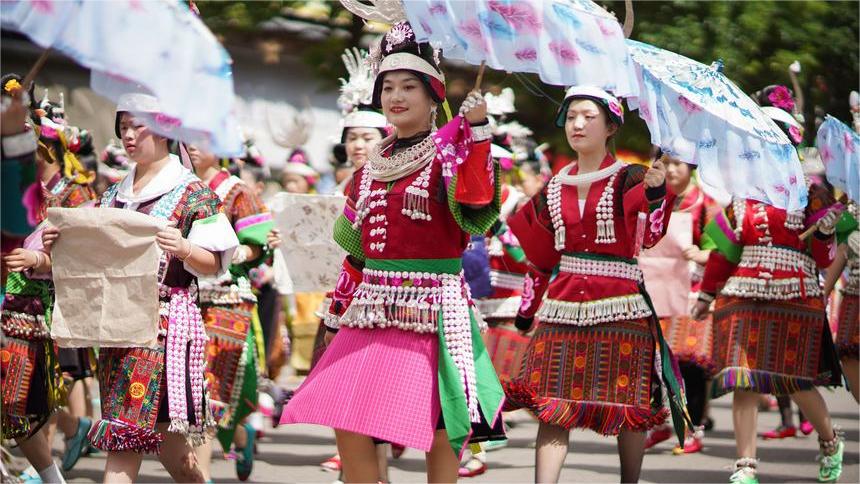Crab farming brings prosperity to mountain village in China's Anhui

Aerial photo shows Maofan village, Changpu township, Yuexi county, east China's Anhui Province. (People's Daily Online/Wang Rui)
In a surprising twist, a village nestled in the Dabie Mountains in east China's Anhui Province has begun raising Chinese hairy crabs, traditionally associated with big rivers and lakes.
Five years ago, when the first batch of crab seedlings was released into ponds in Maofan village, Changpu township, Yuexi county in Anhui Province, many villagers were skeptical of crab farming. However, Yao Youzhi, Party chief of the village, remained confident, as he conducted thorough research.
Yao, a 46-year-old native of Maofan village who had worked in Wuxi city, east China's Jiangsu Province, returned to his hometown in 2014 and was elected as the village's Party chief in the same year.
Yao, who had previous exposure to crab farming in Jiangsu Province, saw potential in Yuexi's excellent water quality. After confirming local spring water's rich mineral content and consulting with aquaculture experts, he led the village to build four ponds in 2019 to raise nearly 25,000 seedlings of Chinese hairy crabs.

Photo shows a Chinese hairy crab farmed in Maofan village, Changpu township, Yuexi county, east China's Anhui Province. (People's Daily Online/Wang Rui)
The mountain environment, with its lower water temperature and higher oxygen levels, significantly increased crab survival rates. In addition, the superior water quality resulted in high-quality crabs known for their delicious taste.
"They're ready for market around Mid-Autumn Festival. A female crab above 250 grams can sell for 80 yuan ($11)," Yao said.
Yao added that the village doesn't worry about sales of crabs thanks to pre-orders from Shanghai and Shenzhen. Last year, the gross profit of crabs in the village reached 500,000 yuan.
Chinese hairy crab farming has become one of the specialty industries in the village, Yao noted.
Thanks to the development of these specialty industries, the collective economic income of the village increased from almost nothing in 2014 to over 1 million yuan in 2023.
Local resident Yang Guixiang is checking on the growth of crabs by a pond. "Working near home, I can earn over 40,000 yuan a year from wages and dividends," Yang said.
The purpose of developing rural specialty industries is to ultimately expand channels for villagers to increase their income and wealth, Yao said, adding that the village will continue to implement measures to ensure that the benefits of industrial development reach all villagers.
Photos
Related Stories
Copyright © 2024 People's Daily Online. All Rights Reserved.









